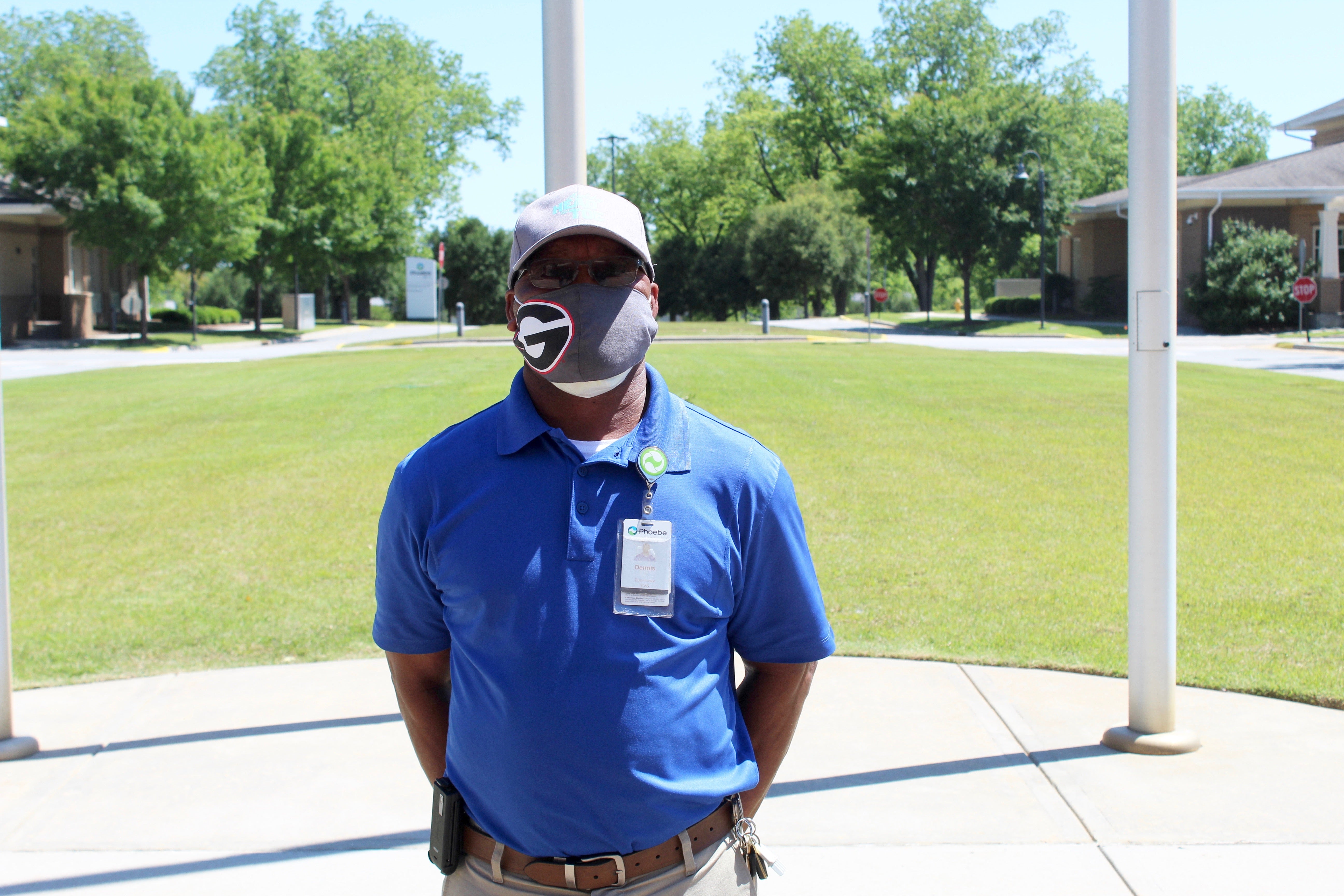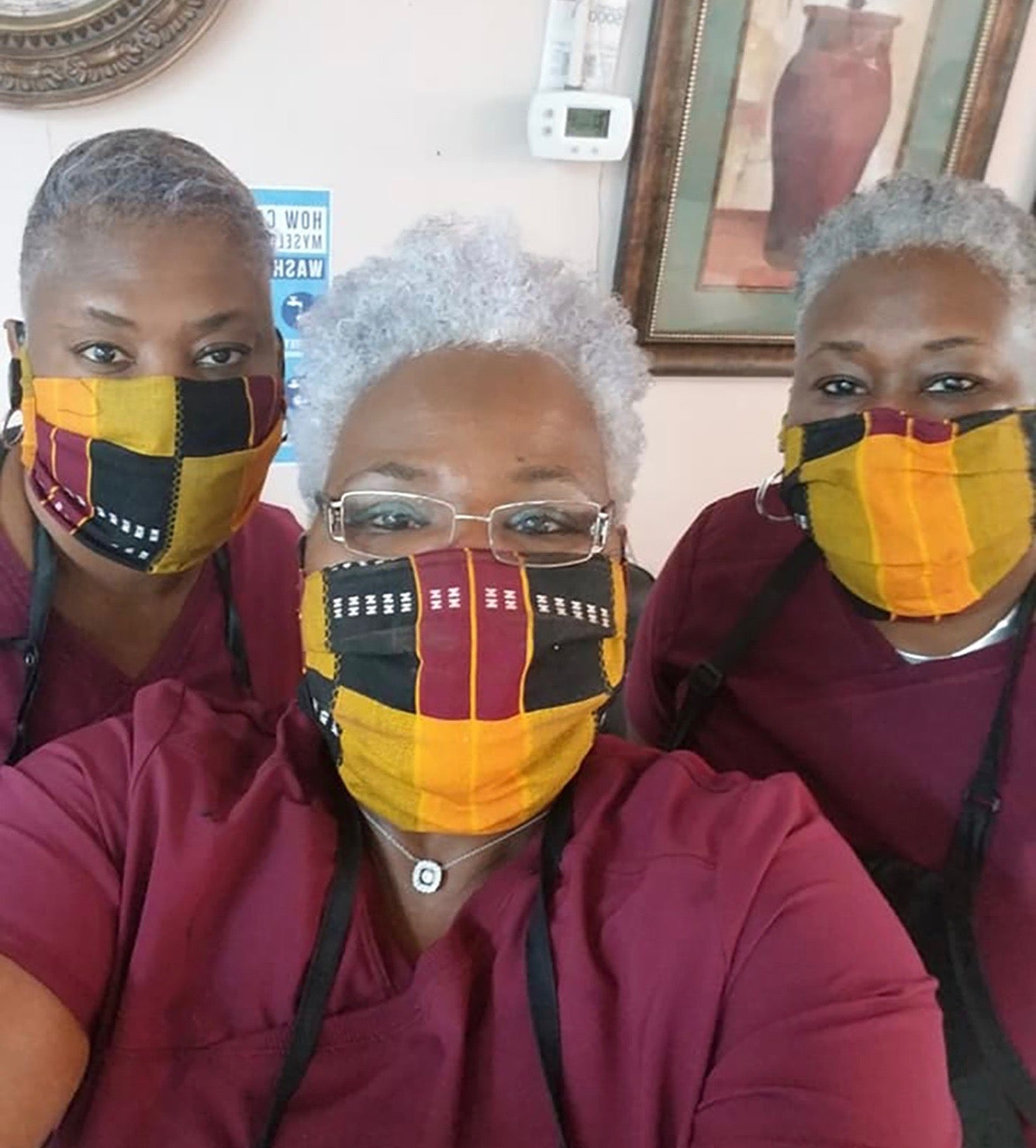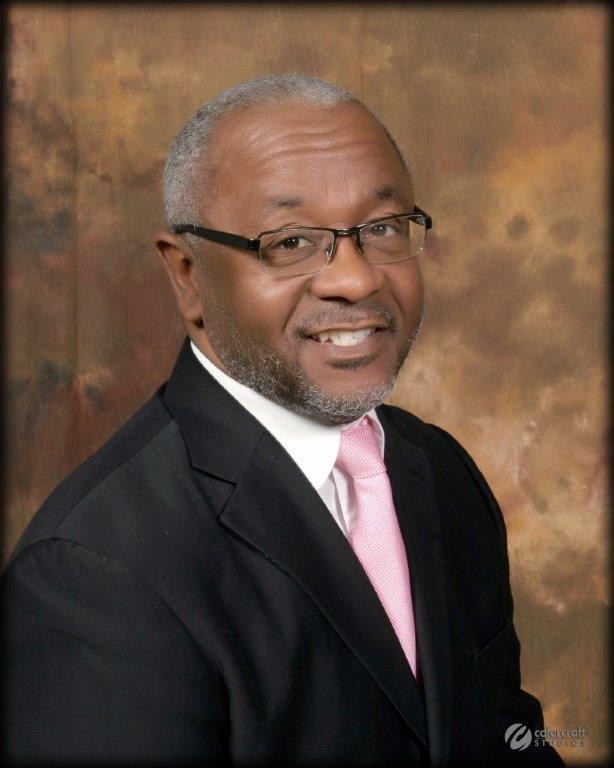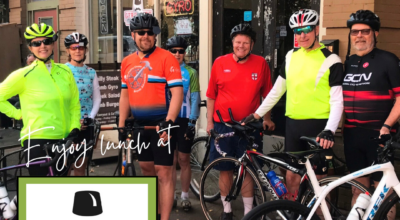Faces f COVID-19 in Sumter County
Published 9:32 am Saturday, May 9, 2020
|
Getting your Trinity Audio player ready...
|
 March 14th Governor Kemp declared a public health state of emergency in Georgia. March 20th the first two COVID-19 cases were confirmed in Sumter County. It is now May 9th and Sumter County, at press time Friday May 8th, had 389 confirmed cases of COVID-19 and 29 members of our community have lost their lives to the virus.
March 14th Governor Kemp declared a public health state of emergency in Georgia. March 20th the first two COVID-19 cases were confirmed in Sumter County. It is now May 9th and Sumter County, at press time Friday May 8th, had 389 confirmed cases of COVID-19 and 29 members of our community have lost their lives to the virus.
Americus Times-Recorder has been telling the stories of this community since 1879. We continue this tradition by telling your stories of how this virus has affected your lives.
Today is the first publication of this series and we are pleased to bring you the stories of Mr. George Edge who is the CEO of the Housing Authority of Americus, Mr. Dennis Berryhill who is the supervisor of Environmental Services at Phoebe Sumter Medical Center andDorthea Lusane-McKenzie who owns Dorthea’s Beauty Salon. These are stories of three people whose every day lives have been effected by this virus and how they are coping with the “new normal” we are all faced with.
Man recovered: George Edge
By: Tracy K. Hall
Recovered. George Edge reports he has recovered from COVID-19. It was not easy, and it took a while, but George says he is at 100%. So, what is it like to test positive for the coronavirus? George reports he utilized all his resources to fight. And George has fought before. Having overcome a cancer diagnosis in 2009, he is a proven warrior. However, coronavirus presented a different kind of challenge for George. Different from cancer, there was no medicine to take, and for George no hospital stay required. The medical community would provide daily check-ins to see if they could be of assistance to him, however recovery from the virus was dependent largely upon his taking his own care into his hands.
“On March 17th, I noticed aching in my body and my assumption was I had the flu. I initially had a low-grade fever and it lingered, then the symptoms started to progress.” George reports chills, fatigue, trouble with his motor skills and cognition were ever present. Finally, after his temperature raised and sustained at over 101, he went to the emergency room on March 22. “I was the patient they didn’t want coming to the E.R. If I had COVID they didn’t want it to spread. If I didn’t have COVID they didn’t want me to contract it.” On March 22, the local threat was becoming more and more apparent but still not fully realized. It was not until April 3rd that Governor Brian Kemp gave the shelter in place order. George was tested for flu and strep throat. Both results came back negative and he knew he likely had contracted the virus. At the doctor’s instruction, George went to Albany to get tested. He was then told to quarantine for 14 days to wait for the results. George, his wife, his 25-year-old son and a 4-year-old lived in the home together. It was a precarious situation as he did not want to spread the virus, so his family took as many precautions as was reasonable at that time. George’s fever continued while other symptoms like shortness of breath, dry cough, headaches and diarrhea set in. George bought some supplements and a spirometer which is used as a breathing exercise. He began to use orange peel vapor to help with the shortness of breath. He gives great credence to these tools for his recovery. “I was told to go into quarantine for 14 days. I was not going home to die. I took active involvement in my own care.” The results of his test came back 6 days later, on March 29th. There is a certain loneliness that came with the diagnosis, as the treatment was a “quarantine and wait” situation. While medical professionals would contact him, there was no prescription regime to follow, there was simply quarantine and wait. “I think the medical world was totally shocked by this. In my case, I had to resort to means I could figure out.”
George reports that his friends and family made a real outpouring to him. Following the White House Task Force’s recommendations, they would leave provisions at his door. They were offering continuous support for his mental health. A sister asked him the obvious question: “Are you afraid?” George responded, “Afraid of dying? I can’t be afraid of dying because my mind can’t dwell on the promises of Jesus Christ and death at the same time.” George readily admits his faith pulled him through. He also touts the fact he has a 4-year-old in the home. “He kept me active and moving. I didn’t realize it at the time, but he forced me to persevere.” George reports he also had to quit watching the news during this time. “I didn’t want to hear the talking about people dying. My heart bleeds thinking about the isolation from family and everyone, and when they expire the family has to deal with that too.” George can see there might be a real need for counseling once the virus’ threat has declined. He reports even though he is fully healed a cough, or a headache will bring back troubling memories. He also considers those, like him, who recovered at home but might not have been tested. He ponders the idea the number of positive cases might be higher than is being reported simply because some are not counted in the test numbers.
In the following days, George’s 25-year-old son had a frightening period when he also came down with a fever, however the symptoms did not progress. George’s wife, however, did test positive for the virus. When asked if George could trace where he was exposed to the virus, he reports he is uncertain, but wonders if he was exposed in the workplace. Five of George’s co-workers have also tested positive for the virus and seem to be making progress towards recovery. Asked if he thought our community was doing a good job of following the Task Force recommendations, he feels we are doing an adequate job, but precautions must be followed. “There is still a segment of younger people who feel like they are invincible. I would tell them to take it seriously. Follow the advice of the medical world.”
George’s lasting impressions are that of family and friends. “The love that was shown can not be something that is overlooked. We need to look out for each other. We got to love one another.” He also reports as a result of going public he can tell there is some apprehension on behalf of some, but he can understand why; “it is serious—your life could be stricken.” But he goes on to say yet again, “in the midst of that we got to love each other.” George states plainly, “this is a very serious condition—if we are going to be successful, we have to love each other.” When asked what advice he would pass on, George responds with 3 key things. “First, keep your faith in God. Second, check your diet, it is key to prevention. Lastly, guard your thoughts with all diligence.”
The community cheers for George’s recovery. George owns a determined and faithful heart. We would be wise to remember the experience of such a man. We would be wise to remember his words as we continue to do our part to slow the spread, “If we are going to be successful, we have to love each other.”
 Dennis Berryhill: Dedicated Leadership
Dennis Berryhill: Dedicated Leadership
Tracy K. Hall
Dennis Berryhill believes in teamwork. As a supervisor of environmental services for Phoebe Sumter Medical Center (PSMC), he is insuring the hospital is a safe environment for all who enter the facility. He is passionate about the work he does. When asked how things were going for him, he states, “We’re going to make it do what it do! We are hanging in there!” Dennis reports the virus has been a change for everybody. “It’s a totally different ballgame, but we are up for the challenge.” While Dennis and his staff are dedicated to ensuring the virus does not have an opportunity to spread in the hospital, they are also working to calm the nerves of the patients and their families. Dennis is passionate over the patient having quality care from the environment service team, but he is equally passionate he does his part to let patient’s families know they are in good hands. He takes his responsibility to provide a comfort to the patient and their families seriously. He does this by being fastidious to cease the spread of the virus on surfaces. He and his team also realize hospitalization can be lonely for patients at this time, so they see their time with patients as a privilege and an opportunity to support the patient. Dennis realizes the importance of kindness and he and his team are dedicated to offering it in lieu of family and friends. On their regular cleanings, the team makes a special effort to do their part in preventing the spread of the virus, but perhaps equally important, they want to increase the spread of kindness.
The staff are well equipped to perform their vital duties. Much like the medical staff, the environmental service staff are also outfitted in masks and personal protective equipment. They are also utilizing the best in technology to ensure the patients have a healthy environment to heal in. By using UV technology as well as “fogger” they can see into tiny cracks and crevices of a room and know the exact amount of time and cleaner needed to keep the room sanitized. The fog machine decontaminates the room by spraying a fine mist throughout the space and allowing it to dry. The process is similar to what first responders are doing for the inside of their vehicles to ensure the surfaces are free of the virus. The cleanings are thorough, and the fogger process alone takes an hour to complete. Dennis is confident once his team has completed their work the space is safe for another patient to utilize.
Dennis is quick to report this work requires a team approach. He leads two shifts of environmental service personnel, a staff of about 16. Dennis has increased the number of hours he works dramatically, yet he refuses to grow weary. In addition to working the last 15 years at PSMC he also is considered an essential worker at Burger King, where he has been working the morning shift for the last 25 years. The opportunities for sleep are limited, but he knows how important his work is and he is dedicated to getting it done, “customer service is our number one priority.” Things have changed at home as well. He disrobes before entering his home to be doubly sure he is not bringing the virus in his space. He reports, “I even want to make sure my German Shepard is well!”
When asked if he has ever been through anything like this in the past, he reports the Coronavirus has presented a unique challenge, however he likens it to the work he did after the tornado ripped through Sumter Regional Hospital. Comparing the two, he says the tornado was easier because when it was gone the threat was removed. With the virus, the threat is something that must be contained every moment of everyday and there is no definite end date to this threat. Dennis’ passion to make sure his team is supported is evident in his responses. The team’s passion to make sure the patients and their families are supported is evident in their work. Dennis is taking care of his team, he is taking care of patients, he is taking care of patient families. When asked who is taking care of him, he states, “the good Lord!” Dennis reports, “when you sign on for health care, there is no limit you won’t go to take care of patients and their families.” His enthusiasm is a contagion that should not be contained.
PSMC reports the response of the community is amazing. It has been fuel to keep them going. The support comes in all manners of ways, and it has been sustained throughout this entire time. While support is often strong in the beginning of a crisis, the Sumter County community have proven they can sustain their support for the staff of PSMC. In thanking Dennis for his service, he responds, “It takes a team, and you’re part of that team too!” Indeed, we all have a special role to play in maintaining a healthy and kind culture despite the Coronavirus.
 Dorothea’s Beauty Salon ready to bounce back from COVID-19 closure
Dorothea’s Beauty Salon ready to bounce back from COVID-19 closure
By Ken Gustafson
Like the rest of Georgia, America and the world, the COVID-19 Coronavirus Pandemic has not spared Sumter County from physical and economic turmoil. According to the Georgia Department of Public Health, close to 400 people in Sumter County have tested positive for the disease and close to 30 people have lost their lives as a result of COVID-19. However, it’s not just the physical toll that has been devastating. For several businesses and livelihoods in the county, the economic toll wrought by the disease has been just as devastating.
Fortunately, being that Governor Brian Kemp has gradually decided to gradually reopen the state and allow certain businesses to reopen, local businesses are getting ready to bounce back. One such local business is Dorothea’s Beauty Salon.
Located at 601 North Lee Street in Americus, Dorothea’s Beauty Salon is a family-owned business. Dorothea Lusane-McKenzie is the owner of the salon and her two sisters, Monica Lusane and Tracy Finch, rent booths at the salon and are independent contractors. Lusane-McKenzie opened up the salon in April of 1984 and has been in business for nearly four decades. Monica Lusane has been with her for 26 years and Finch has been with the business for 30.
Before the COVID-19 Pandemic, the salon was doing very well. Between the three sisters, it was averaging about 75 to 80 clients a week, but when the pandemic hit Sumter County and all local businesses were forced to close their doors, the effect was destructive.
“We had to completely close so you know that was devastation,” said Lusane-McKenzie. “No income and not knowing the future, it was very impactful. I work at South Georgia Tech as the Cosmetology Instructor as well and with them (her two sisters), that was their soul income. We had to close so they were out of work for five weeks.”
For Monica Lusane, losing her livelihood through her sister’s salon business was disappointing, but she believes that it taught her some important life lessons.
“I think through COVID-19 and the last 30 days, it will make our nation stronger and more appreciative of what we have,” said Lusane. “Stay healthy and safe. It will slow us down and make us appreciate life.” Lusane went on to say that during the time the salon was closed, she did a lot of praying to get her through this time and it helped her regroup. For Finch, the closure didn’t effect her as much financially, but she missed working with her clients. “I hope they return,” said Finch. “With God, all things are possible.”
Fortunately, with Governor Brian Kemp’s executive order to allow certain businesses to open on Friday, April 24, including barber shops and hair salons, Lusane-McKenzie, Monica Lusane and Tracy Finch were able to begin the task of rebuilding their business, albeit slowly. “He (Governor Kemp) said that we could open up on April 24, but we did not open,” said Lusane-McKenzie. “Our first day back was May 1. We opened up Friday and Saturday.”
Even though businesses here in Sumter County and around the state are slowly reopening, it will obviously not be like it was before the pandemic. Therefore, these businesses and livelihoods will have to abide by strict guidelines designed to protect themselves and their clients from contracting COVID-19 and Dorothea’s Beauty Salon is no exception.
“We are following all of the cosmetology guidelines,” said Lusane-McKenzie. “First of all, we keep the doors locked. No one, unless they are being serviced, is allowed to enter. They have to knock. Then we take their temperature. Then they immediately go to the sink and wash their hands. Then we go in and they have to sign a disclaimer stating that they know all of the symptoms of COVID-19 and we state that if they have ever been around someone with the virus within 14 days, they have to get back in touch with us so we can notify everyone that received service on that day.”
Lusane-McKenzie went on to say that the business will go strictly by appointments. “Each one of us can only have two clients at a time. Therefore, leaving no more than nine people in the salon at one time,” Lusane-McKenzie said. “We where masks and the clients are masked at all times. We also wear face shields and eye goggles.”
Lusane-McKenzie went on to say that these new guidelines and procedures that are being meticulously followed would be the norm for the foreseeable future.
So far, business at Dorothea’s Beauty Salon has gone well and has not experienced any major issues since it reopened on Friday, May 1.
“The first two days went very well. Everybody was in compliance,” Lusane-McKenzie said. “If the customers don’t come masked, they can purchase a mask from us. We only had one that didn’t so she purchased a mask. The clients have been so glad for us to open back up. They’re following all the guidelines.”
The COVID-19 crisis has been extremely rough on local businesses such as Dorothea’s Beauty Salon, but Dorothea, Monica and Tracy have taken their first steps to getting their business back on the road to recovery. The salon is located at 601 North Lee Street in Americus. For those who would like to schedule an appointment, they can call 229-924-9083.
If you were diagnosed with COVID-19 and would like to share your story to celebrate your recovery or if you have lost a loved one to the virus and would like to share their story we invite you to reach out to us. You can message us on Facebook, email us at news@americustimesrecorder.com or call 229-924-2751 with your contact information.
We would appreciate the opportunity to share your story with our community and document this important time in Sumter County history.







